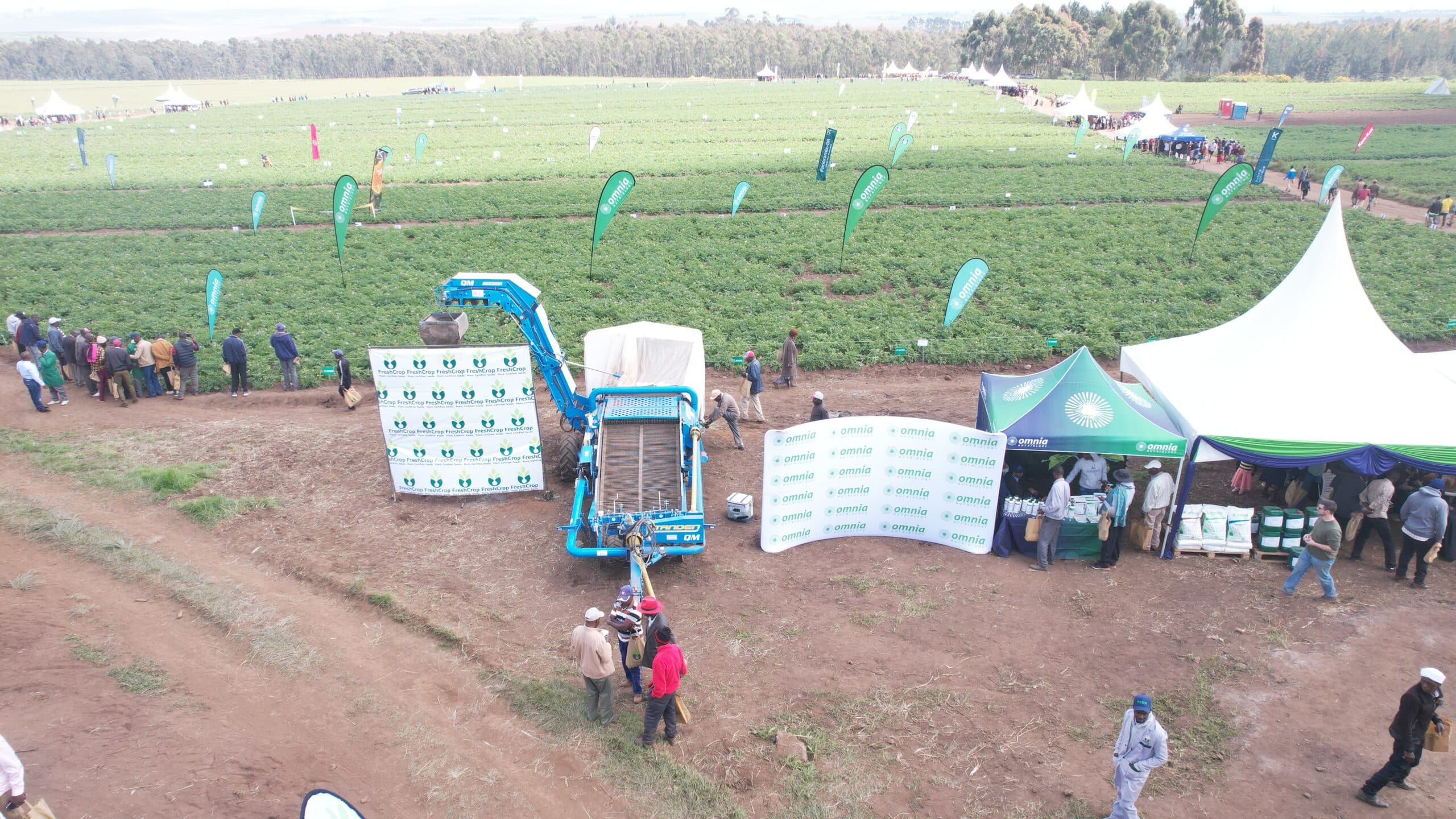As Kenya continues to expand its potato program, challenges are still abundant.
The use of national certified seed currently covers less than five per cent of the acreage — a key impediment to growth in the sector. The International Potato Center (CIP) estimates bacterial wilt spreading through poor seed can result in 30 per cent losses in yield. In addition, climate change — erratic rains and degenerated soil in the key potato growing agro-ecological zones — leads to significant fluctuations in access to ware potatoes.
However, emerging technology in seed multiplication, focus on sound soil and water management, optimal fertilizer use, varietal selection for pest and disease tolerance, and improved post-harvest handling measures are important factors to increase and stabilize potato productivity. To meet the demand for high quality seed potatoes, a large-scale production by farmers is needed to meet the quality demanded by government and seed buyers. Mechanization is an important necessity to make this possible.
An example of successful use of mechanization in Kenya is FreshCrop Ltd. FreshCrop, a seed potato company in Kenya managed by CEO Christopher Gasperi, adds value along the potato chain by including adoption of apical root cuttings to rapidly multiply high-grade potato seeds.
Support from the World Potato Congress (WPC) and the Irish Government’s official development aid programme allowed representatives from FreshCrop to attend WPC in Dublin in 2022. This resulted in successful networking for both FreshCrop and WPC sustaining partners and trade show participants. Following the Congress, FreshCrop expanded existing practices with help of a matching grant from CRAFT/SNV and financing from local banks. Conversations with potato equipment manufacturer Grimme at WPC Dublin resulted in the purchase of a ridger to incorporate mechanical weeding and larger ridge formation into their potato production. This resulted in an increase in marketable yields. Standen, a potato machinery company, introduced Freshcrop to a potato harvester that has dirt and debris removal mechanisms and was to load directly into bulkwagons. In addition, equipment manufacturer Dewulf’s dealer in Africa and FreshCrop continue to explore additional equipment options for Kenyans. In-person conversations at WPC were invaluable to building the FreshCrop potato program from 20 hectares of certified seed annually in 2021 to almost 500 ha in 2023.
Respecting the social context of the community, FreshCrop used a step-wise approach of introducing mechanization to expand production without eliminating their labour force — instead they re-purposed roles. Previously planting 1.2 ha per day with 60 labourers, FreshCrop is now able to plant 10 ha per day with 20 laborers. Grimme’s ridger resulted in roughly a 10 per cent increase in production, as proper ridging allows for moisture retention and increased tuber initiation and growth.
Previously manually harvesting a maximum of two hectares per day with 75 laborers expanded to eight hectares per day with 15 labourers. Mechanization increased in potatoes lifted out of the ground by five to 10 per cent, lowered costs, and decreased post-harvest losses with 20 per cent fewer damaged potatoes compared to manual harvest. Mechanized sorting improved time efficiencies resulting in a cost savings of 40 per cent.
FreshCrop uses the Train the Trainer (ToT) model, providing climate smart potato production training to a network of 6,000 plus farmers. FreshCrop also hosts international visitors interested in certified seed and potato production from countries including Cameroon, Morocco, Germany, Egypt, Abu Dhabi, Yemen, and Comoros. Large field days bring together over 40 stakeholders and this year was attended by 5,000 farmers.
Registration is now open for the 12th WPC happening in Adelaide, Australia in June 2024, and the WPC looks forward to providing the opportunity for global collaboration and future success stories from this event.
Special thanks to the following contributors to this story: Christopher Gasperi and Ashley Gasperi of FreshCrop, Shadrack Nyawade with CIP, Oscar Nzoka, Climate Resilient Agribusiness for Tomorrow, Netherlands Development Organization and Irish Aid.
Header photo — A display by Standen, a potato machinery company, at Farmers Field Day. Photo: FreshCrop Ltd.
Related Articles
Nairobi, Kenya to Host 2026 World Potato Congress
Solynta Signs Agreement to Develop True Potato Seeds for Kenya
Declaration of Dublin: Fostering Potato Partnerships for Food Security









